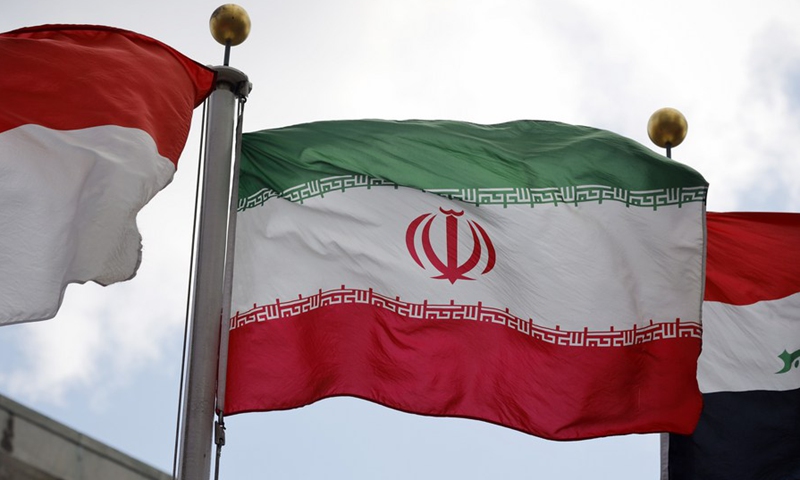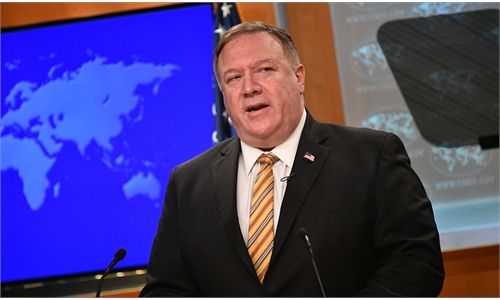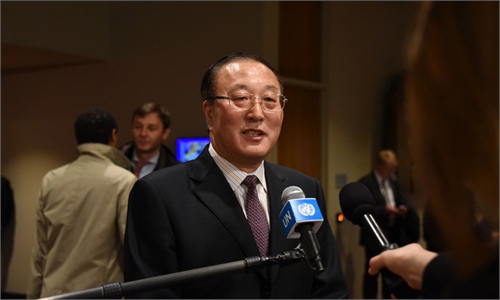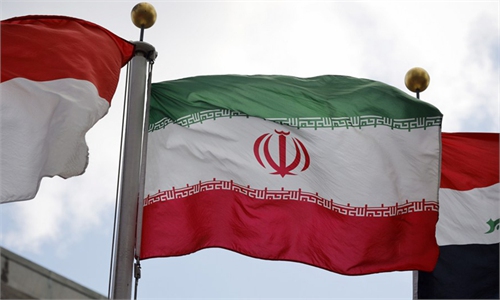US-Iran tensions worry Arabs
UN anniversary sees leaders highlight world’s worst woes

An Iranian flag is pictured at the United Nations headquarters in New York, Jan. 8, 2020. (Xinhua/Li Muzi)
Arab leaders voiced fears Wednesday before the United Nations (UN) of new conflict in the region as tensions soar between Iran and the US.
The annual extravaganza of international diplomacy at the UN General Assembly has been turned into a virtual affair in 2020, with leaders sending in recorded speeches due to the COVID-19 pandemic.
Two days after US President Donald Trump ramped up pressure on Iran in a widely contested move, the leaders of Iraq and Saudi Arabia voiced concerns about the region.
"We do not want Iraq to become a sort of playground for other forces that will kill each other on our territory," Iraqi President Barham Salih said in his address.
"We have witnessed enough wars and enough attacks on our sovereignty," he said.
Iraq has attempted a delicate balancing act between Iran, which shares the Shiite faith of the majority in its Arab neighbor, and the US, which invaded and toppled leader Saddam Hussein in 2003.
US President Donald Trump in January ordered a drone strike in Baghdad that killed Iran's most prominent general, Qasem Soleimani, as well as an Iraqi Shiite paramilitary leader, raising calls in Baghdad for the expulsion of US forces.
Trump rejected the calls for a withdrawal but in September ordered a sharp cutback of troops in Iraq as part of his election promise to stop "endless" wars.
Salih hinted at frustration in Iraq with "anarchic" groups, whose rocket fire on US forces had prompted the drone strike.
"Weapons must remain in the hands of Iraqi state institutions," Salih said.
He also vowed to tackle rampant corruption, a key priority for Iraqi Prime Minister Mustafa al-Kadhemi, who came to power after sweeping nationwide protests.
Trump has vowed to squeeze Iran, imposing sweeping economic sanctions and leaving a 2015 nuclear accord that was negotiated by his predecessor Barack Obama.
On Monday, Trump said he was enforcing "UN" sanctions for Iranian violations of an arms embargo - despite wide skepticism at the world body that the US has such authority.
Saudi Arabia's King Salman used his address to voice concern about Iran and pointed to drone attacks in 2019 on the kingdom's oil fields, which Washington says were carried out by Tehran in violation of the arms embargo.
Saudi Arabia has been engaged in a bloody campaign against Iranian-backed Huthi rebels in Yemen, where multiple air strikes have killed civilians and contributed to a humanitarian crisis.
Iranian President Hassan Rouhani, speaking to the UN on Monday, pointed to Saudi Arabia as he denounced the unsuccessful US efforts to extend an arms embargo on Tehran.
AFP



